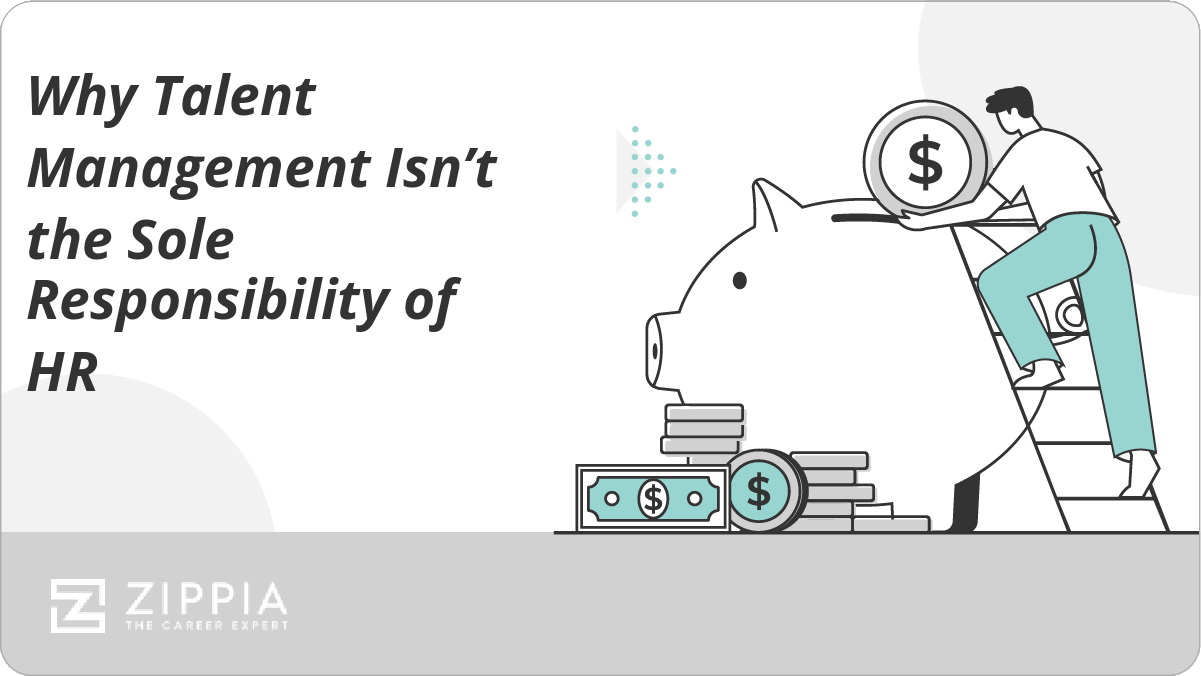Talent management is an organized strategy, where businesses focus on attracting, recruiting, developing, motivating and retaining the best quality talent. While the concept is broad, the basic principle involves making the most of the talent at your disposal, in an effort to optimise overall business results.
Conventional wisdom dictates that talent management is a human resources concept and, as a result, many organizations delegate it to their HR staff. However, this is an inefficient, short-sighted, narrow approach, which places too much responsibility on their shoulders, while giving others too much of a free ride.
Key Takeaways:
-
HR departments have a wide variety of responsibilities that should not be neglected, and making them solely responsible for talent management can cause those other areas to suffer.
-
Talent management should be holistic and cross-departmental so that managers don’t simply delegate the responsibility to HR by default.
-
Thorough documentation, such as a talent management manifesto, can help to establish expectations and make sure that everyone understands their responsibilities.

Reasons Not to Delegate Talent Management to HR
-
It overworks HR. One of the biggest reasons why delegating talent management responsibilities to HR is a mistake is because it demands too much from HR. The HR Department has many responsibilities, ranging from resolving pay issues and handling absenteeism, to dealing with disputes and various admin tasks.
Although there is clearly a role for HR in areas such as recruitment and employee development, expectations need to be realistic. HR departments cannot be expected to balance their essential administrative tasks with taking sole responsibility for the management of talent too.
It is also necessary to point out that most HR departments do not have daily contact with individual members of staff, limiting their influence on things like onboarding.
Treating talent management as the sole responsibility of HR is unlikely to produce the required results, but is also likely to mean HR staff take criticism for things that are, realistically, beyond their capabilities. Instead, organizations should only delegate them specific, suitable tasks, which require HR skills and expertise.
-
It reduces managerial responsibility. Another significant problem with the mass delegation of talent management to human resources, or even to a specialist talent management team, is that it takes responsibility and influence away from departmental managers and fails to make the most of their leadership role.
Similarly, this bypassing of individual managers means that those managers will become disengaged with regards to this key element, which plays a huge role in their team’s success. Worse, it gives them the ability to pass the buck when specific issues related to talent arise, even if they are part of the problem.
This is also potentially problematic because managers are often key contributors to one of the biggest talent problems organizations face; high turnover rates. In fact, research carried out by Gallup suggests that as many as 50 percent of people leaving a job do so to get away from their manager.
-
A holistic approach is needed. It is important to stress that this does not mean human resources departments do not have an important role to play in managing talent. Rather, the crucial take-away is that talent management strategies are extremely broad, and responsibilities should, therefore, be delegated to a broad range of people within an organization.
When you consider the various functions that fall under the talent management umbrella, the need for cross-departmental collaboration becomes more apparent. For example, recruitment alone involves HR drawing up person specifications, marketing departments creating the recruitment content and HR and managers conducting interviews.
Employee development, meanwhile, is the shared responsibility of department managers, individual employees and training experts, while most training strategies require buy-in at executive level. Retaining staff is largely a job for managers, but turnover rates can even be impacted by the design of the workplace itself.
“Talent management is everyone’s job,” explains Tina Merry, senior director at Electronic Arts, in an article for LinkedIn’s Pulse platform. “With everyone taking clear responsibility for their own role…we can ensure a meaningful and engaging employment experience and outstanding business results.”
-
You should develop a talent management manifesto. With an acceptance that talent management is not the sole responsibility of HR, companies need to think about how they can develop and empower the various people, from managers to senior marketers, who are involved in the process. One of the best ways to do this is to create a talent management charter or manifesto.
Not only will this make it clear that responsibility for managing talent is cross-departmental and falls across many shoulders, it can also be used to define exactly who is responsible for which aspects. For example, you may write it into your charter that responsibility for turnover lies primarily with managers.
Drawing up a document in this way can also help when it comes to developing the talents of those with a stake in talent management. It may be that, once their responsibilities are in writing, the case for providing regular, high-quality sales management training becomes much stronger, which then has a knock-on effect on turnover.
Moreover, a talent management manifesto or charter can also include a clear mission statement, which is shared by the various departments. This will help to ensure that different departments are all working towards the same goals and that their various talent management efforts are more clearly aligned with one another.
HR and Talent Management FAQs
-
What are the main responsibilities of HR beyond talent management?
The main responsibilities of HR beyond talent management include employee relationships, payroll operations, and new employee onboarding. While talent management may fall under the umbrella of HR’s responsibilities, the department typically has many other duties as well, all of which are important and should not be neglected.
-
What is a talent management charter?
A talent management charter or manifesto is a document which clearly and definitively outlines your organization’s practices for talent management. This document can also make clear who is responsible for which areas of talent management in order to make sure that everyone is on the same page and knows what is expected of them.
-
What does talent management include?
Talent management includes attracting and selecting candidates, as well as retaining existing employees and developing their skills. Talent management can take many forms, and will look different at each organization.
Make sure that everyone in your organization, especially at the managerial levels, knows what their role is with regards to talent management and how it should be handled.
-
How do you reduce employee turnover?
You reduce employee turnover by maintaining fair pay and benefits, and by hiring the right people. Preventing turnover starts with hiring people who intend to stick around. During hiring, get a sense of candidates’ future plans and how long they intend to stay with your organization.
In addition, you can prevent employee turnover by making sure that your employees get fair pay and benefits and giving appropriate raises to longtime employees.
Final Thoughts
Delegating the responsibility for talent management to HR alone can lead to a variety of problems, from overworking the HR department to allowing managers to dodge responsibility. Make sure everyone in your organization understands their role in talent management for a more holistic and effective approach.





